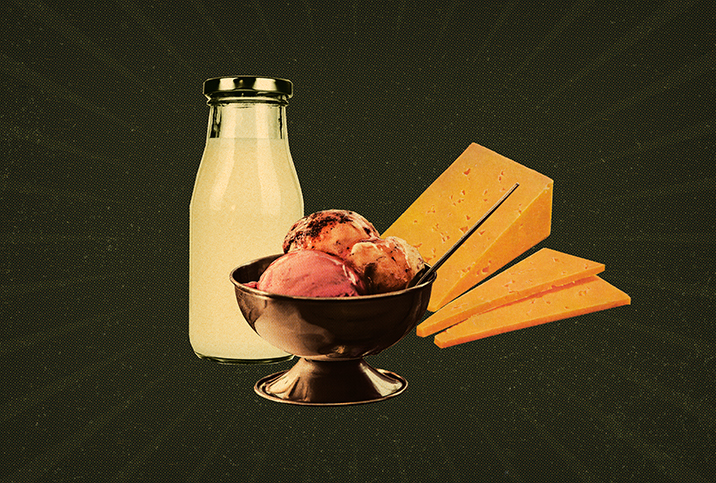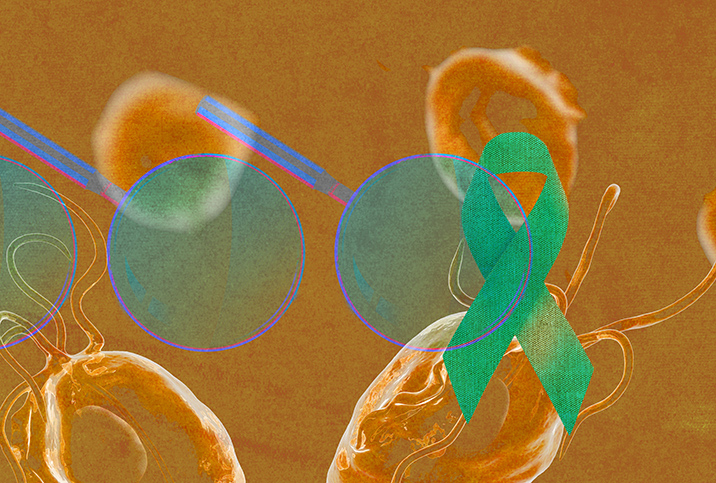Between the Pages: 'Prostate Cancer and the Man You Love' Revisited

In a newly revised edition of the award-winning book "Prostate Cancer and the Man You Love," author Anne Katz, Ph.D., R.N., delivers updated, evidence-based guidance for men with prostate cancer and their partners.
The book, which is out now from publisher Rowman & Littlefield, provides a comprehensive overview of the prostate cancer experience, including diagnosis, treatment options—such as surgery and radiation therapy—as well as the side effects of treatment. Each chapter features insightful and relatable stories of couples dealing with prostate cancer, and the physical, mental and sexual challenges associated with the disease.
As a clinical nurse specialist and certified sexuality counselor at CancerCare Manitoba in Winnipeg, Canada, Katz provides expert counseling to prostate cancer patients—and their partners—who are having sexual difficulties.
"Prostate Cancer and the Man You Love, 2nd Edition," is her 15th publication. In this exclusive interview with Giddy, Katz discusses recent improvements in prostate cancer treatment, choosing between surgery and radiation therapy, and more.
Editor's note: This interview has been edited for length and clarity.
How did this book first come to be? And why did you decide to write a fully revised second edition?
Katz: A big part of my practice as both a clinical nurse specialist and sexuality counselor is devoted to men with prostate cancer and their partners. They always talk about prostate cancer as a "couple's disease." I think that any cancer, if you have a partner, is a couple's disease. I wrote the original book 10 years ago because there wasn't anything comprehensive that addressed the issues of both the man and his partner which went beyond diagnosis and treatment options or sexual issues. I wanted something more comprehensive that looked at prostate cancer from screening, biopsy, treatment, decision-making, and then all the issues related to the treatment and the impact on both the man and his partner.
There's been a considerable amount of research in this area, so it needed an update. That's why I wrote the revision and wrote it differently. The first edition had case studies interspersed in evidence-based content. I believe that we learn best from stories, so in the second edition, I wrote narrative stories of men with prostate cancer across the disease spectrum with evidence-based guidance and advice interspersed.
How has our understanding and treatment of prostate cancer improved since you wrote the first edition?
I think the biggest change has been in the recommendation and use of active surveillance. When someone hears the word "cancer," they only hear about 10 percent of what they're told next. This is why a book like this is important, because we do tend to front-load people. And often, the partner is not present.
We now recognize that many men with low-risk prostate cancer can often be observed. This is very different from watchful waiting, which used to be recommended for elderly men who had less than 10 years of predicted life left. Basically, men were told, "We're not going to treat this. Go away and come back if you have symptoms of advanced prostate cancer."
This is not a great way to deal with this.
Active surveillance refers to actively monitoring the disease with regular PSA [prostate-specific antigen] screening, which might indicate that the cancer is more active, and repeat biopsies. In this way, we delay treatment as much as possible, thus, protecting the man's quality of life, so he won't experience urine incontinence, erectile dysfunction and other sexual side effects of the treatment for prostate cancer.
What's the first thing you'd like a newly diagnosed patient to know about prostate cancer?
Generally, this is slow-growing cancer that is not particularly lethal. I say generally. Certainly, there are going to be men who are diagnosed with an aggressive form of prostate cancer. I think the normal human response to a diagnosis of cancer is, "Get the tumor out; get the prostate out." And that isn't always necessary.
I would advise men to sit on this for a while; let the dust settle. Have another conversation with the physician, nurse practitioner, radiation oncologist or urologist in a couple of weeks when you realize you didn't die the next day. When you can listen and actually hear the details and what treatment options you have, that's probably a good idea. They often say about prostate cancer that the cure is worse than the disease because of the impact the treatment has on your quality of life.
What do you find to be the most common sexual side effects of radical prostatectomy, a surgical removal of the prostate? And how can men manage these side effects?
Profound erectile dysfunction. Essentially, all men immediately after surgery are not going to be able to have erections. This may improve over two years, but at the same time, the man is getting older. As I tell my patients, age is not a friend to the penis. Erections for men are symbolic of masculinity. We see a whole range of emotions and psychosocial effects from the lack of erections. We often see couples become quite distanced. The partner doesn't want to initiate anything, not even sometimes a hug, because he or she is afraid of the response that they will get. It gets really quite messy and complicated.
What advice would I give? Certainly, for men, not to give up in terms of erections. Very often, the oral medications don't work well after surgery. There are alternatives, the most effective being penile self-injection. When I raise that to patients, I can see them cross their legs. I don't think any man grows up thinking that one day he'll have to stick a needle in the side of his penis to have an erection. But it's something that works.
Communication with a partner is so important because we tend to make assumptions about what our partner is thinking or feeling, and we get it wrong probably 80 to 90 percent of the time, particularly around sexuality. It's often not easy to talk about, even when couples have been together for decades. The lack of spontaneity in terms of sexual functioning is also really important. The need to use an erectile aid is a barrier that is often hard to overcome. People want to be sexual in the way that they were before.
What are the main considerations when choosing between radical prostatectomy and radiation therapy?
Sometimes there are exclusions around surgery. It's a significant surgery based on the man's age or cardiovascular status. If he has a lot of comorbidities—high blood pressure, cardiovascular disease, diabetes, etcetera—surgery may not be the best option for him, and that should be clearly explained. There are people who believe that if you undergo surgery for cancer, cancer gets spread, and that's not true.
There are people who don't like the idea of radiation because they have attitudes or beliefs about radiation. The man and his partner need to hear in detail when they are ready about the various treatment options and the side effects. That needs to be in detail because this is going to impact the man's quality of life. Based on full information, the man should make a decision.
Some of it is the man's preference. Some of it is related to the persuasive ability of the healthcare provider. It's not a bad idea if your first interaction is with a urologist. Ask to speak with a radiation oncologist and get it from the horse's mouth, so to speak. If your questions are not answered, keep at them. You have to feel really comfortable with whoever is going to be providing treatment.
How can the man's partner help?
If the man doesn't want to talk about it, find a way to discuss it. I know that's not always easy. Listen. Reassure. And insist that you go to all appointments. Ask if you can record the conversation with a healthcare provider. Any healthcare provider who is confident in what they are saying should not refuse that. The partner can take notes at appointments as well. Often, healthcare providers talk really fast.
Ask lots of questions. Write down any questions the partner thinks of as it's a really wise option to go into any of these conversations with a list of questions. Also, just be honest. The partner shouldn't pretend they're not affected by what's happening, because they absolutely are.


















